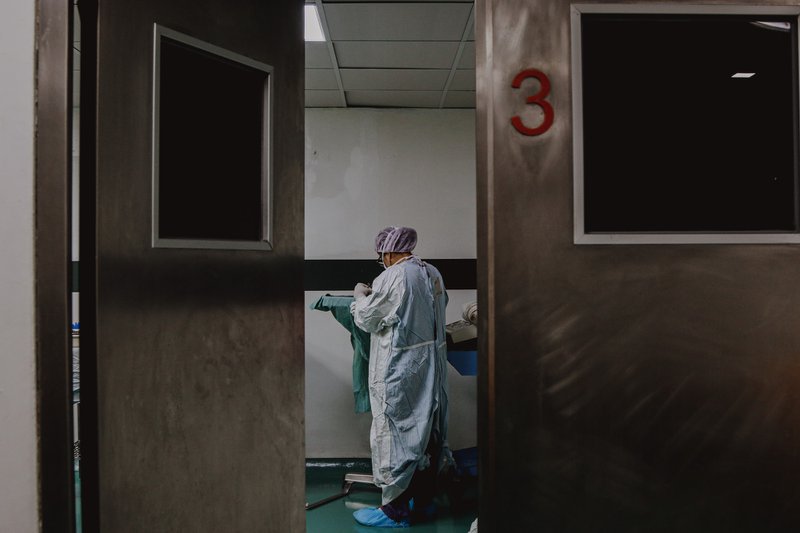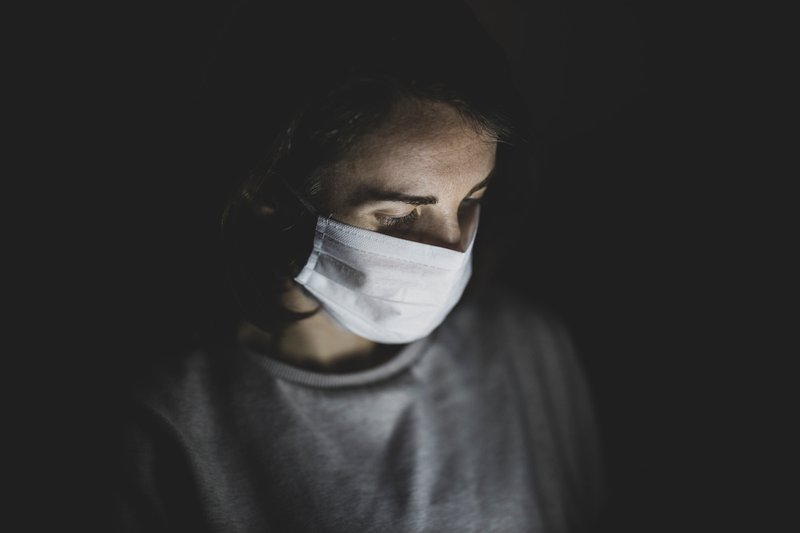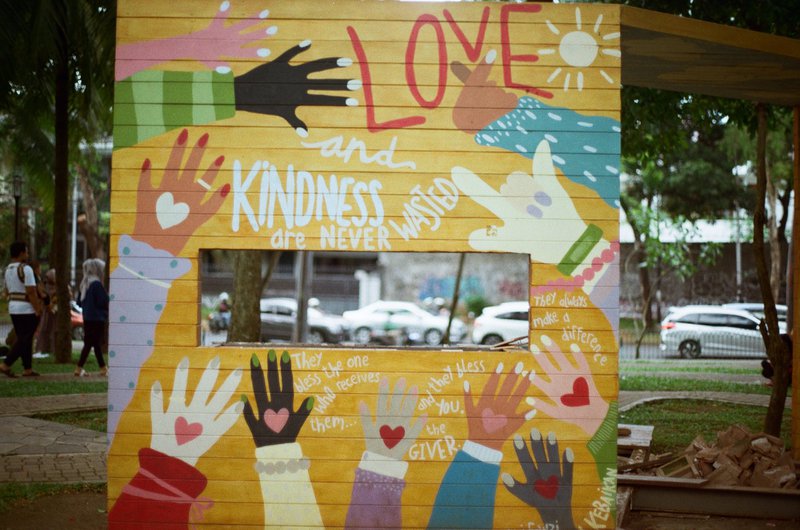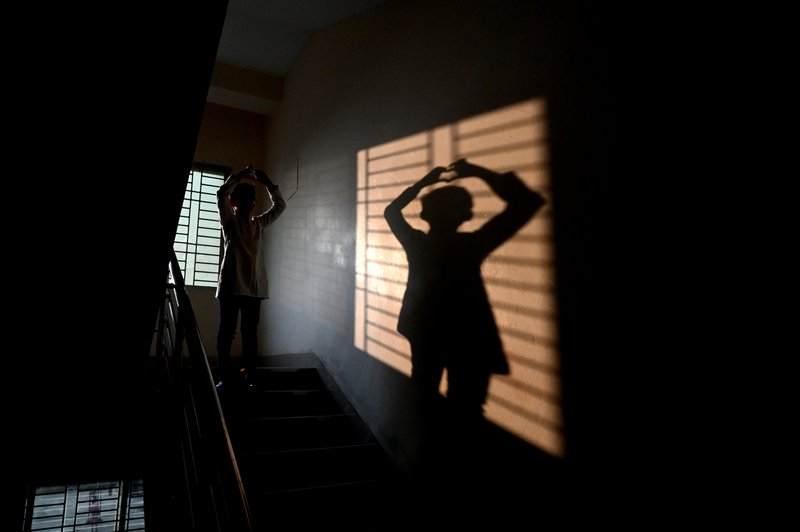Healthcare professionals are experiencing an epidemic of compassion fatigue
I just read an opinion piece by Dr. Daniela Lamas, published in the New York Times. The article was entitled, An I.C.U Doctor’s Message of Hope Amid Omicron, and it spoke of the stress of the pandemic and the risk of compassion fatigue among healthcare professionals.
Dr. Lamas then went on the mention a number of examples of the opposite happening in her workplace, where her colleagues were able to tend to their patients with all the patience and kindness in the world.
The piece got me thinking about compassion fatigue and how some of my colleagues are experiencing burnout at an alarming rate. They aren’t saying it in public, but they’re angry at the unvaccinated who are filling their hospitals and pushing aside other patients who need life-saving care.
They’re frightened of their hospitals becoming overwhelmed and the healthcare system collapsing, and they’re frustrated over the choices that their patients are making that are making things worse for everyone.
My colleagues are increasingly worried for one-another as they witness more and more overwhelm and exhaustion among the healthcare staff. They resent the unvaccinated who are, in their minds, a significant part of the problem.

We’re not supposed to talk about our dark thoughts, feelings, or urges
No-one knows about this because no-one is saying these things out loud. Healthcare professionals aren’t supposed to feel these nasty feelings. They certainly aren’t encouraged to voice them out in the open. But the facts remain. Underneath the smiles and the silence and the tolerant, competent care there’s secret anger, resentment, and frustration brewing in the hearts of many healthcare professionals.
I wonder if one of the reasons for all the burnout we’re seeing is because there’s no outlet for the honest expression of the entire range of emotions healthcare professionals are experiencing right now.
In my years as a psychotherapist, I’ve treated a number of patients with workplace burnout and they all had one thing in common—they were pushing themselves too hard and keeping all their feelings inside.
These patients weren’t all healthcare professionals, but some were. Their common ground was not their line of work but the way that they didn’t take care of themselves; in particular, how they had no outlet for their honest emotions.

The shadow is the part of our psyche that we’re ashamed of
Years ago, I was introduced to the Jungian concept of the shadow by the late poet, Robert Bly. I attended some workshops led by him and therapist, Marion Woodman and read Bly’s work entitled, A Little Book on the Human Shadow.
I learned that the shadow is the part of our psyche that we’re embarrassed about and ashamed of. It’s all the ugly, dirty, nasty thoughts, feelings, and urges that we’re not supposed to have and are definitely not supposed to show anyone else.
Many, if not most of us repress the shadow within, but when we do so it’s like putting ourselves in a pressure-cooker and inevitably, the shadow will leak—either outward, in the form of inappropriate blurting and impulsive acts, or inward, by imploding into self-destructive thoughts and behaviours.
I learned that the only way to avoid such destructive leakage was to acknowledge and embrace the shadow part of ourselves—not to act out these feelings and urges against others or ourselves, but to integrate them into our conscious awareness so that we develop mastery over them.
When we own the shadow, we don’t leak the shadow. We can see ourselves honestly for who we are and have as much compassion for our ugly bits as we enjoy the beautiful parts of ourselves and each-other.

Ruthless Compassion arose from an understanding of the shadow
It’s not surprising that soon after these workshops, I developed my concept of Ruthless Compassion, which brings together the ideas of loving-kindness with fierce honesty and mental toughness.
With Ruthless Compassion, we can see the truth about ourselves, others, and the world, and we can embrace the darkness within all of us. But, instead of punishing anyone for who they are and what they feel or want, we can be forgiving and accepting toward ourselves, and loving yet well-boundaried with others.
By acknowledging our own darkness, we release the internal pressure so that we’re not compelled to leak these unwanted thoughts, feelings, or urges.
As healthcare professionals, we can accept the darkness within others, and instead of trying to repress our hatred or rage toward them—which will inevitably poison us from the inside—we can see their flawed humanity with ruthless compassion. We can care for them without supporting or enabling their hurtful behaviours. We can love them without approving of their choices.
When I think about compassion fatigue among my colleagues, I recall that as healthcare professionals, we have no forum for expressing our shadow side‚ no permission to even have the thoughts, feelings, or urges that can’t help but arise in a super-stressful and increasingly polarized situation.
We’re supposed to be the paragons of virtue—always selfless, self-sacrificing, and tolerant of the intolerable; never complaining, never negative in any way. That’s simply not humanly possible. We can pretend to do it, but then everyone pays a huge price.
So, if being untarnished and praiseworthy is the only acceptable option, what do many of my colleagues do? They repress their anger, their resentment, their frustration. They keep soldiering on, and because they’re caring individuals, the leakage is directed inward.
They become poisoned by their own repressed negativity. They become so overwhelmed that they can no longer go on. And then the healthcare system begins to crumble.

The way to avoid burnout is to embrace the shadow
I suggest that the way through is not to deny these ugly-but all-too-human emotions, but to acknowledge and accept them. We need to face our shadow and embrace the darkness within each and every one of us.
When we can start having honest conversations about how we really think, feel and want, the pressure is lifted and we can breathe freely again. We’re less compelled to leak and we feel a sense of wholeness and inner peace.
We can care for our patients knowing that even as we love them, sometimes we hate them; that even as we tend to them with professionalism and respect, sometimes we’re incredibly frustrated with them, and that even as we make time for them, we resent the toll their choices are taking on us, our families and on society.
It's not bad to have these shadow emotions, thoughts, and urges. It’s human. What differentiates the good people from the bad ones is that the good ones don’t want to cause harm to anyone and they always try their best not to do so.
If we want to be good people and avoid burnout and compassion fatigue, we need to accept the ugly, nasty, shadow parts of ourselves. The more we embrace the shadow and integrate the darkness into ourselves the easier it will be to do the right thing while also taking the best possible care of ourselves.
______
Sign up here for my free biweekly wellness newsletter that brings you fresh, thought-provoking content.
Subscribe to my YouTube Channel where you’ll learn simple tips for taking the best care of yourself and your loved ones.
Tune in to my Ruthless Compassion Podcast where I go in-depth about topics like mental health, trauma, and loneliness.



